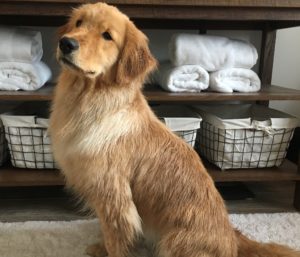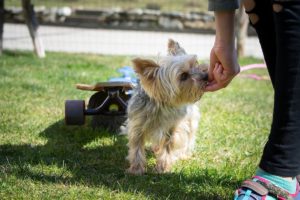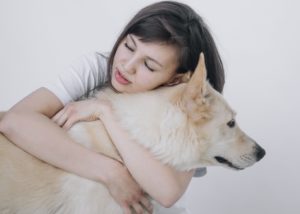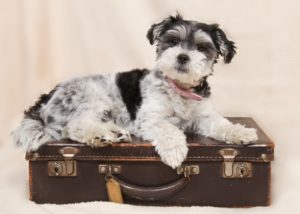The first few months of your puppy’s life are crucial for socialization. This period forms the basis of how he reacts to humans, dogs, and new experiences for the rest of his life. A new puppy should be gently introduced to a wide range of new encounters before he is 18 weeks old. If this doesn’t happen then he may struggle to adapt to new experiences later in life.
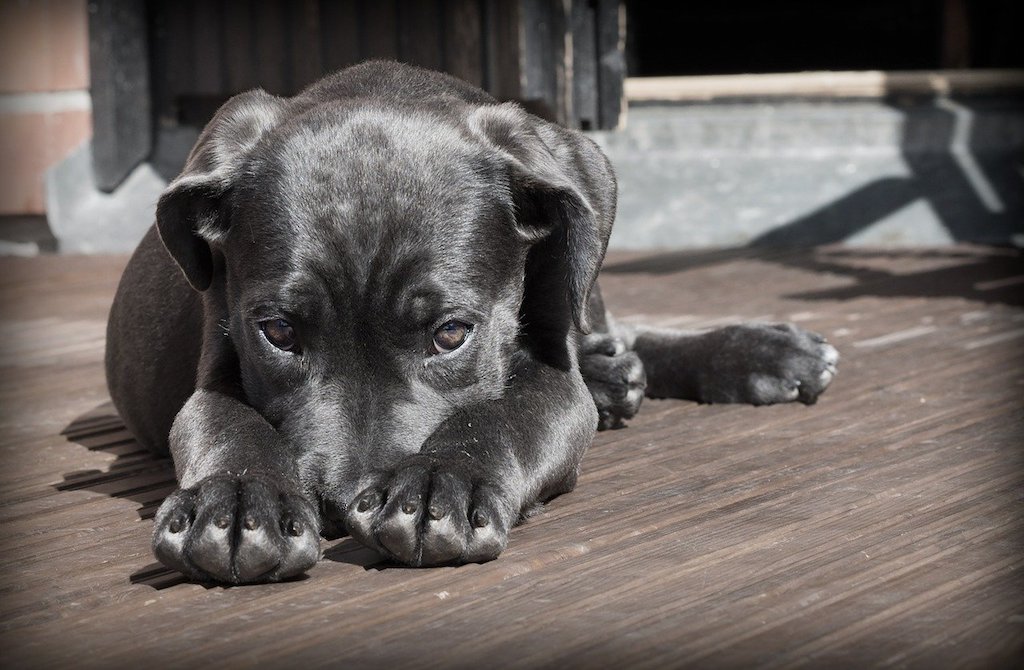
You may already be socializing your puppy, perhaps without even realizing it. Every new encounter is a socialization experience. Each visitor to your home who wants to cuddle your gorgeous new puppy is helping! It is essential that every step of socialization is carried out correctly to enable your puppy to become a happy and sociable adult dog.
When to start socializing your dog
The period from two to twelve weeks of age is crucial for puppy socialization. After the age of twelve weeks, dogs will naturally greet any new encounter with caution. It is important however that socialization continues right into adulthood.
It is likely that your puppy will have already started socialization with the breeder. They should already be getting used to being handled and experiencing new sounds, sights and smells. Continue this as soon as your puppy arrives home but remember to take it slowly – give them chance to settle into their new home first.
Is your puppy ready to meet humans or other dogs?
Each puppy is hugely different – some are confident, and others may be shy and reserved. It is important that you watch your puppy’s reaction to each encounter and plan the next step accordingly. Overwhelming your puppy with daunting experiences may slow down their socialization progress.
Have a look at how your puppy reacts to different situations. Is he bold and forthcoming when new people come into the house? If so, it may be time to move on to the next stage. On the other hand, if he hides behind the furniture then you need to go back a step.
Can I socialize my unvaccinated puppy?
Yes, your unvaccinated puppy can start socialization, but some caution is required. It is not advisable for your puppy to mix with dogs of unknown vaccination status. Your puppy is very susceptible to diseases at this stage. It is safe for your puppy to meet other dogs which are fully vaccinated, but this contact must be in a safe place.
Puppy classes have specific rules regarding vaccination, meaning that your puppy can meet other puppies safely. The American Veterinary Society of Animal Behavior (AVSAB) recommendations state that puppies be socialized before the vaccine series is complete. Puppies may be able to start socialization classes as early as 7-to-8 weeks of age. AVSAB advise is that the puppy should receive their first set of vaccines at least 7 days prior to the first class.
Until your puppy is fully protected by vaccination ensure that you follow these rules:
- Do not allow your puppy to mix with dogs of unknown vaccination status.
- Do not take your puppy to public areas such as parks or other areas that other dogs may have fouled.
- Carry your puppy when necessary to avoid unwanted contact from other dogs or soiled areas.
It is perfectly safe for your unvaccinated puppy to mix with humans. If they have their own dogs then it would be advisable for them to wash their hands before cuddling your new puppy.
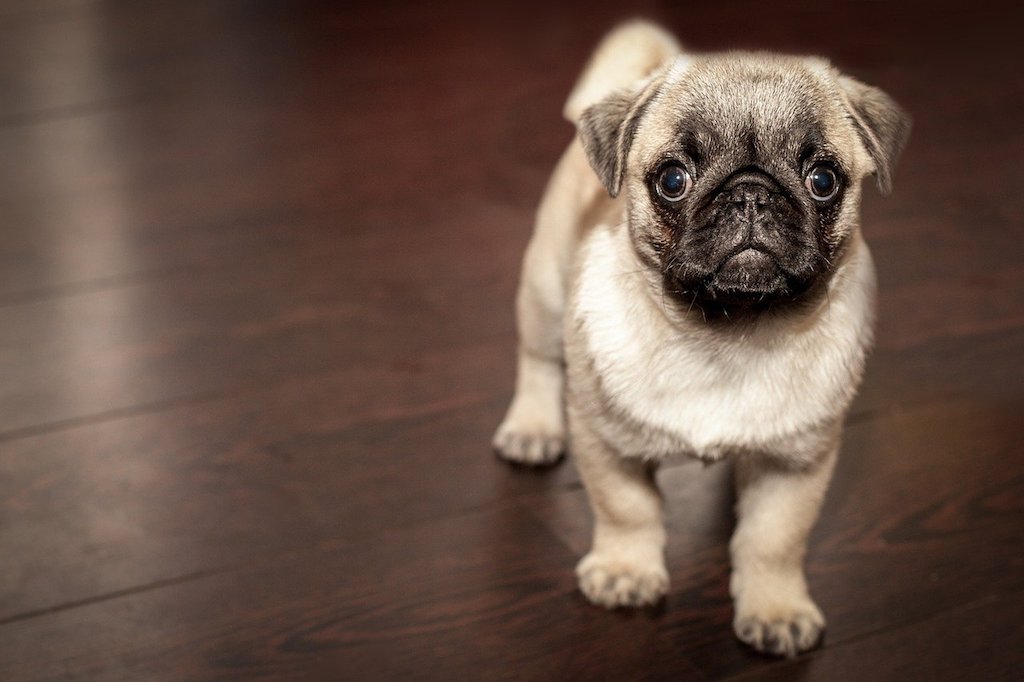
Socializing your puppy with humans
-
People who visit your house
This is the first stage of socialization and starts the moment you bring your new puppy home. When meeting any human for the first time, even their new owner, it important that the puppy can initiate the encounter on their own terms. The easiest way to achieve this is to sit on the floor and allow your puppy to come up to you in their own time.
When people visit your home, encourage them to do the same. Avoid passing your puppy from person to person. Let the puppy decide when they are ready to meet someone new. This helps to ensure that each new encounter is a positive experience for your puppy.
-
Children and strange adults
It is not unheard of for some dogs to be afraid of children, because they never met any when they were puppies! Even if you have children of your own then it is advisable for you to introduce your puppy to other children. This will stop your puppy getting worried when they meet new children later in life.
Your puppy might be happy and comfortable with your family and friends, but what about strangers? Ask visitors to your house such as workmen, delivery drivers and mail men to help with your socialization. This will also help your puppy to meet a wider variety of humans of all ages, shapes, and sizes!
-
People you meet on the street
Strangers on the street may see your gorgeous fluffy puppy and want a cuddle, which is a great opportunity for socialization. Treat this like a new socialization experience in the home. Ask the person to crouch down so your puppy can go to them in their own time. If your puppy is shy or timid then this type of contact is best avoided until they are feeling more confident.
-
People in stores
A lot of stores are now pet-friendly which gives a fantastic opportunity for socialization. Take them into the store so they can experience the sights and sounds and meet new people. If your dog is particularly timid around a particular type of person then stores can be a great place to overcome this. For example, workmen often appear scary to puppies so seek them out in hardware stores for your dog to meet!
-
People at work
If you are lucky enough to be able to bring a dog to the office, then you can start socializing your puppy in your work environment. Take your puppy in for short periods at first – you may find that it is best to take them in your own time so you can focus on them fully. Bring familiar objects from home to help them settle in, creating a safe space. Ask your co-workers to come and meet your new puppy in his safe space one at a time rather than crowding and overwhelming him.
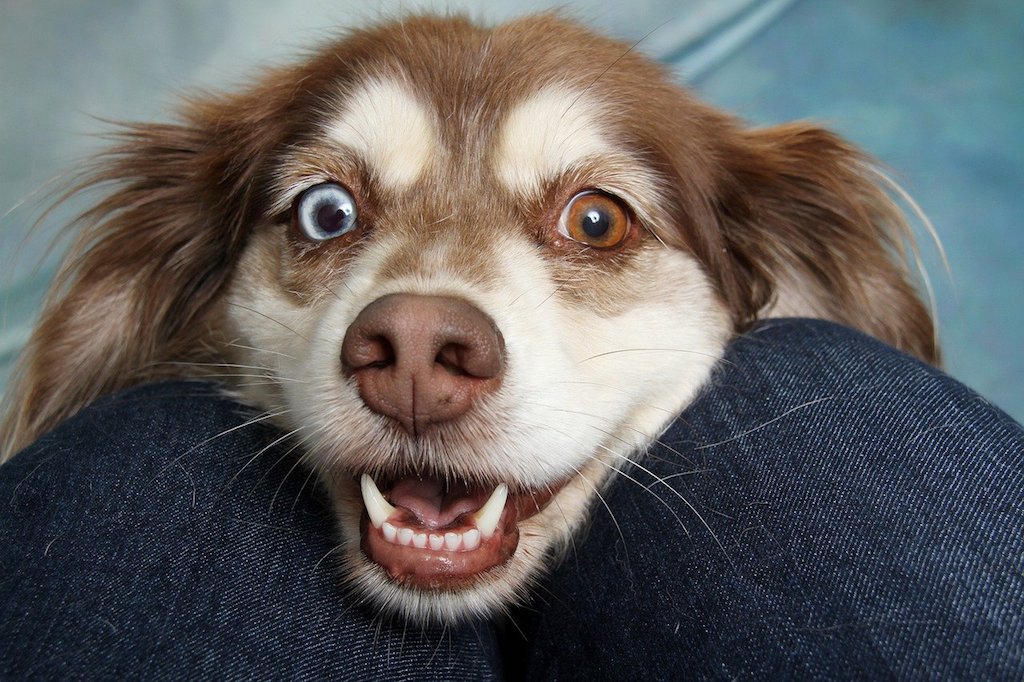
Socializing your puppy with other dogs
-
Dogs who visit your house
You may already have other dogs of your own at home, in which case some socialization will have taken place already. It is important that your puppy meets other dogs from outside the home as well. Ask friends to bring their well-behaved vaccinated dogs for a visit to your house, allowing your puppy to meet them on neutral territory such as in the garden.
Pick your socialization visitor dogs carefully – a bad experience with an unruly dog is worse than no socialization at all! A positive experience means that your puppy will mimic the behavior and responses of the other dog, creating a valuable learning experience.
-
Dogs you meet on the street
Until he is fully vaccinated, your puppy should not be permitted to meet dogs on the street. Once they are protected by vaccinations you can start to broaden your horizons, walking to the park and other areas where you may meet new dogs.
Once you are out in public it becomes more difficult to manage encounters with new dogs, especially if owners are allowing their dogs to play off the leash. If your puppy is not comfortable with a situation, such as over-boisterous play, then remove him to a safe place.
-
Puppy socialization classes
Puppy socialization classes are the most useful thing you can do to prepare your puppy for the big wide world. Socialization classes sound fun, but they are not just about a bundle of gorgeous puppies playing together. These sessions teach puppies how to enjoy the company of humans and other dogs, helping to build confidence and life skills.
Pick your socialization class carefully. Ask for recommendations from local experts such as your dog breeder or veterinarian. See if you can observe a class before committing to taking your puppy. The sessions should be structured, so if you just see a chaotic play session then it probably is not beneficial to your puppy.
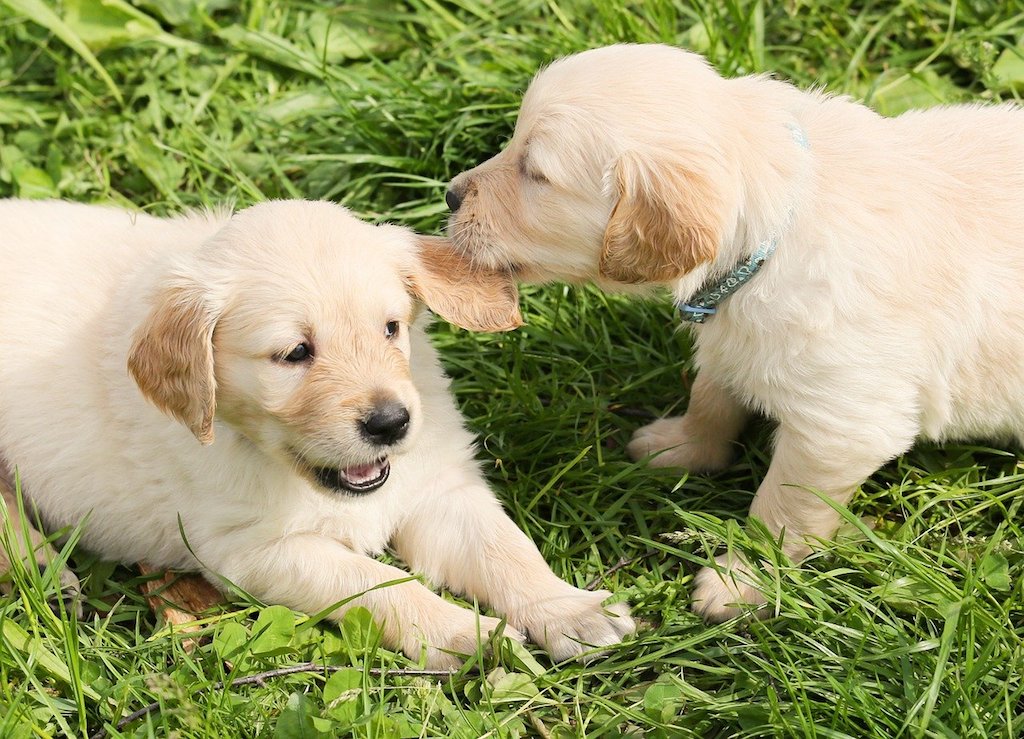
Other types of socialization
Socialization is not just about meeting people and dogs. Your puppy also needs to get used to different environments, noises, sights, and experiences. Even in the home you can expose your puppy to things such as noisy appliances, plastic bags, and umbrellas.
Outside the home we can take them to new places to widen their life experiences. Socialization at the veterinary clinic is particularly important. Try taking your puppy in to the clinic just for a weight check and a treat. This helps to avoid the association of the clinic with unpleasant experiences.
Socializing your new puppy is the one of the most important things you can do for them in their early life. A well socialized puppy is confident and calm in the face of new experience. They will be ready to face the world without feeling distressed or scared. Are you ready to show your new fluffy bundle of gorgeous puppy how to be a happy and thriving member of his human environment?


